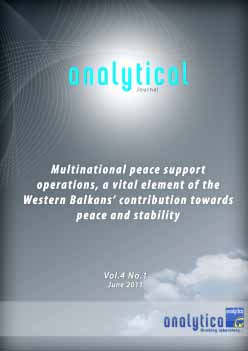Regional Dimension of Participation in Missions Abroad
Regional Dimension of Participation in Missions Abroad
Author(s): Rade Rajkovčevski, Dimitar KirkovskiSubject(s): Politics / Political Sciences
Published by: Аналитика Тинк-тенк Организација
Keywords: NATO; Macedonia; Military Missions; Western Balkans; Democratisation
Summary/Abstract: The events in the 90s had serious implications on the peace and stability in Europe and beyond. The collapse of the USSR and Yugoslavia; political instability and the initiation of democratic processes associated with transitional changes in post-socialist countries; the need to redefine national doctrines, including NATO's strategies; the intensifying effects of globalization associated with economic migration and refugee crises; increasing porosity of borders that allowed illegal crossings, trafficking of illicit goods and large influx of people to Europe considerably changed the security picture of the continent. In the areas that were recovering from the consequences of ethnic conflicts, the efforts of the international community to resolve the security issues between states turned out to be the appropriate solution for the acceleration of reforms in the security sector in the framework of fulfilling the requirements set for the Euro-Atlantic integration processes. In 2003 the Adriatic Charter was founded, following the pattern of the Vilnius group several years before in 2000. Thus, the region of Southeastern Europe, from users of services of foreign military missions, began contributing to world peace support missions. Although several years ago it was impossible, today the state representatives and army’ officials think loudly about forming a military unit of the Western Balkans countries which will have the task to train the Afghan security forces, maybe as soon as year 2012. Regional cooperation in the military missions is not an unknown practice in Europe. The Czech Republic and Slovakia, Scandinavian countries, Benelux and others regionally connected countries practiced sending their troops on joint missions decades ago. This paper, by analyzing the situation in the defence sphere, aims to explain the reasons that experts identify as the basis for the regional cooperation of the smaller countries in participation in international missions.
Journal: Analytical
- Issue Year: 2011
- Issue No: 07
- Page Range: 49-59
- Page Count: 11
- Language: English

